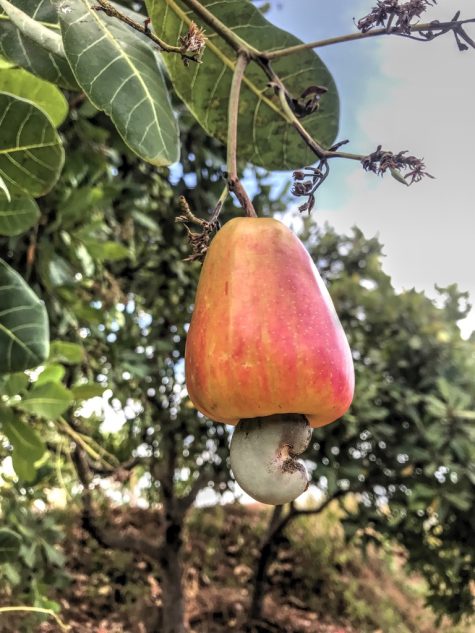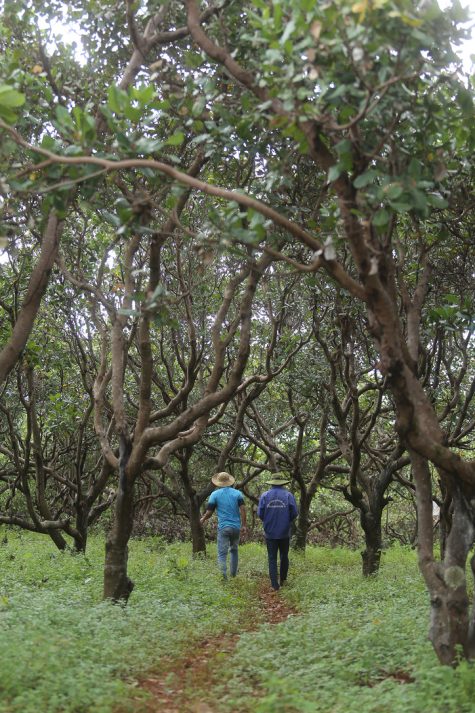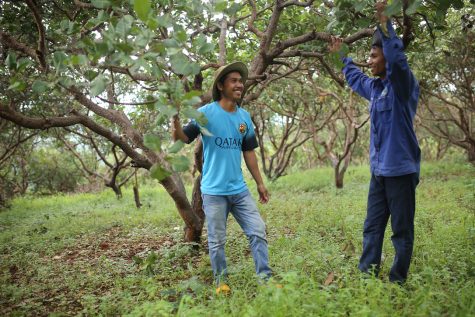Red River Foods is invested in (and investing in!) sustainable supply chains for cashews
Red River Foods, one of Fairtrade’s newest private label sourcing partners, is selling Fairtrade cashews to global retailers, co-manufacturers and start-ups, alike. Amid a complex supply chain, they are committed partners to cashew growers in Ghana, Benin and Côte d’Ivoire. We are so glad for the chance to be in conversation with Juliet Wiebe-King.
Please introduce yourself – what is your role with Red River Foods?
My name is Juliet Wiebe-King, and I am our VP of Sustainability and Business Development. These two core areas of responsibility may seem like an odd pairing, but sustainability is a core part of our mission and because of this we want to ensure we’re developing business in a sustainable way.
Tell me about your company. What’s your mission?
Red River Foods is a vertically integrated supplier of nuts, seeds, dried fruit and specialty snacks from all over the world. Our mission is to source the highest quality foods, provide expert market insight and develop sustainable supply chains around the world.
 What is the story behind Red River Foods cashews? What makes it unique? And where is it being sold?
What is the story behind Red River Foods cashews? What makes it unique? And where is it being sold?
We have spent the last decade investing both upstream and downstream within the cashew supply chain. We have procurement teams in Ghana, Benin, Ivory Coast, Cambodia and Vietnam for the procurement of raw cashews. Our teams are also heavily involved in cashew sustainability programs, working to improve farmer livelihoods at origin and creating a more equitable supply chain. We have five cashew processing facilities (soon to be six) where we ensure the highest foods safety, quality and labor standards. We sell to a number of types of customers, from the world’s largest retailers, to co-manufacturers, to startup brands using nuts, seeds and dried fruit as ingredients. We are not a brand, but we sell our cashews to many of the well-known cashew brands.
What excites you about Fairtrade? Why did you choose to certify your product Fairtrade?
Achieving the goal of getting fair prices for farmers is a complex and dynamic challenge. Fairtrade is one of the key organizations driving this effort. The choice to certify our cashews as Fairtrade comes from two main drivers: the increased demand from our customers- we are constantly monitoring industry trends and the needs of our customers. Without a market, the costs of organization, implementation and monitoring of a certification are not sustainable from a business standpoint. Luckily, we have seen an increase in demand for products that are certified as Fairtrade. The second core driver is that of our principles and values. As a company, we want to see farmers’ livelihoods improved through better prices, market access and innovative best agricultural practices.
 What’s one thing about cashews that surprises you?
What’s one thing about cashews that surprises you?
The complexity of the cashew supply chain-- there are over 50 different origins, 2 million cashew farmers, and over 17 million acres of cashew harvested. The cashew industry is an ever-evolving kaleidoscope of opportunities and challenges. The market dynamics are extremely complex, and pricing on both raw cashew nuts and the processed cashew kernels changes on a daily basis.
How do you use your business to create a more sustainable and/or equitable world?
We pride ourselves on our on-the-ground initiatives which monitor--and aim to improve--the social, environmental and economic conditions in our main sourcing areas. The challenges that rural smallholder farmers face are great and numerous, but we aim to be a business that engages and participates with these farmers to overcome them.
I’d love to hear more about this! Can you share one example of an on-the-ground initiative to improve conditions in your main sourcing areas?
We have a beekeeping program in Ghana and ivory Coast that aims to improve cashew farmer livelihoods by increasing the yields of their cashew trees through increased pollination from the bees as well as providing an additional source of income through the sale of the honey and the beeswax.
Very cool! And what’s next for Red River Foods? For example, where do you see your company in 5 years?
As part of our goal to be the premier supplier of sustainably sourced goods in the industry, we are aiming to continue growing and implementing our sustainability program across all our major supply chains,. We are also looking to make further efforts on the side of our sales team to garner increased interest in certified products, namely Fairtrade. We are also looking at the possibility of supporting farmers in our sourcing networks to organize into formal cooperatives, paving the way for more widespread Fairtrade certification possibilities.
 If you could redesign how the cashew world works to better support farmers, what would you do?
If you could redesign how the cashew world works to better support farmers, what would you do?
If I could redesign the cashew world to support farmers, I would enable the governments of major consuming countries to implement minimum prices for agricultural products and ensure transparency for all actors in the supply chain. The biggest issue for cashews ultimately boils down to price--the fact that most buyers are incredibly price sensitive. Because cashew is a commodity, they expect low prices and, ultimately, that hurts the growers.
What's one thing (big or small) that you’ve learned about Fairtrade since starting to work with us?
I have learned more about the process of how farmer groups decide to use their Premium for community development projects. I find this to be one of the standout credits to the Fairtrade system.
